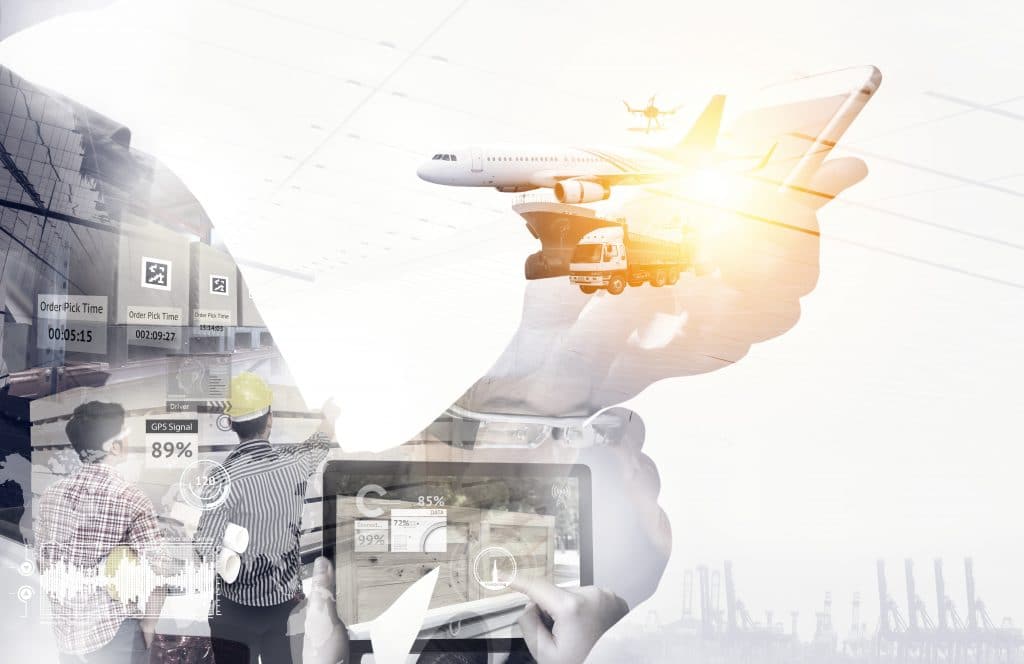How inflation is impacting the supply chain

As inflation continues to climb, all aspects of business are affected. Inflation is having a major impact for those in the freight and logistics industry as costs continue to increase. This article will assess the factors that are resulting in increased costs for all areas of the supply chain, as well as providing insight into how we can support businesses with our freight dimensioning software.
What factors are leading to increased costs in the supply chain?
There are a range of factors that are leading to increased costs for those in the logistics business at all levels. The factors we are going to be discussing are:
- Labour shortages
- Brexit
- Fuel and energy prices
- Bottlenecks in the supply chain
- Continued impact of COVID-19
Labour shortages
It is no secret that the logistics industry is facing a labour shortage crisis. During the peak season of December, those in the logistics business faced huge pressure thanks to the impact of Brexit and COVID-19 – two factors we will come back to later in this article. The limited capacity of the Driving and Vehicle Standards Agency (DVSA) has provided a further catalyst to the labour shortage. Industry leaders have called for an increase in testing and examiner capacity to allow drivers to pass their tests faster. Whilst the pressure has eased slightly post-Christmas, it is still a problem affecting the industry.
Furthermore, because of the limited supply of drivers, drivers who are available are requesting pay rises and better benefits. This has led to an upturn in overheads as firms compete to offer the best packages for drivers so they can ensure smooth and efficient service for customers. Firms also have had to increase pay as a result of the increase in National Living Wage (UK) and sky-rocketing bills thanks to continued inflation.
Brexit
Unfortunately, even in our post-Brexit world the impact felt by Brexit doesn’t seem to be going anywhere. Despite efforts by all parties involved in the supply chain, Brexit is still having a major impact on the logistics industry. From visa issues with drivers to higher customs fees and duties, Brexit continues to cause chaos for those shipping goods across the globe.
Fuel and energy prices
The cost of fuel and energy in the UK has recently skyrocketed and has been widely covered by the media. The impact of these increases are being felt by domestic and commercial customers across the country. Moving goods requires fuel and energy either in the traditional form of fossil fuels or as electricity for logistics firms who have already switched to electric vehicles. As a direct result of inflation, logistics and freight businesses across the UK have seen a rise in overheads and it is unlikely the cost of fuel and energy will reduce soon.
Bottlenecks in the supply chain
A bottleneck occurs when the input of a process becomes faster than the output. There are several things that can cause bottlenecks in the supply chain including miscommunication, broken down vehicles, changing regulations, increased overheads, and stock issues. Bottlenecks can result in delays for customers and increased costs for the supply chain, something that has been affecting the freight industry in recent months. Inflation has played a role in the issue of bottlenecks as inflation continues to drive up the cost of commodities, stock and other overheads associated with transporting goods around the world.
Continued impact of COVID-19
It is no surprise that COVID-19 also features heavily on the list. It has played a major role in shaping the logistics industry since the introduction of nationwide lockdowns, social and travel restrictions. As many shops were closed for extended periods of 2020 and 2021 the increased demand on the ecommerce industry resulted in delays across the supply chain and industry wide shortages. Whilst the repercussions of the pandemic are still being felt as we enter 2022 and beyond, we have begun to see improvements. On the other hand, many costs associated with shipping are still on the rise and at GPC we believe an integral part of accurate invoicing is precise freight dimensioning.
How can GPC Systems help the logistics industry with freight measuring software?
At GPC Systems we have developed a freight dimensioning system to support freight and logistics businesses. Our system has been designed to help reduce costs and improve efficiency. Our system can also integrate with invoicing software to allow for accurate invoicing as well as improving the forward planning process by taking removing the guess work.
The system can be used with handheld or mounted devices, depending on the needs of the business, to measure box dimensions and volumes as well as taking pallet dimensions. The freight measuring system can be easily integrated with existing systems to improve the accuracy of dimensions. Increased accuracy of parcel measurements allows teams and systems to better prepare and plan freight logistics, for example accurate measurements may mean additional boxes can be packed in a van reducing the cost for both the business and the customer. As a result of being able to load the cargo with better accuracy due to precise freight dimensions, businesses will contribute to their sustainability pledges by reducing their carbon footprint. Consumers are passionate about sustainability and “going green”, increasing the capacity of delivery vehicles is a great way for the logistics industry to play their role in a greener planet.
To find out more about our freight dimensioning system visit our website or contact a member of our team who will be happy to provide further information.



